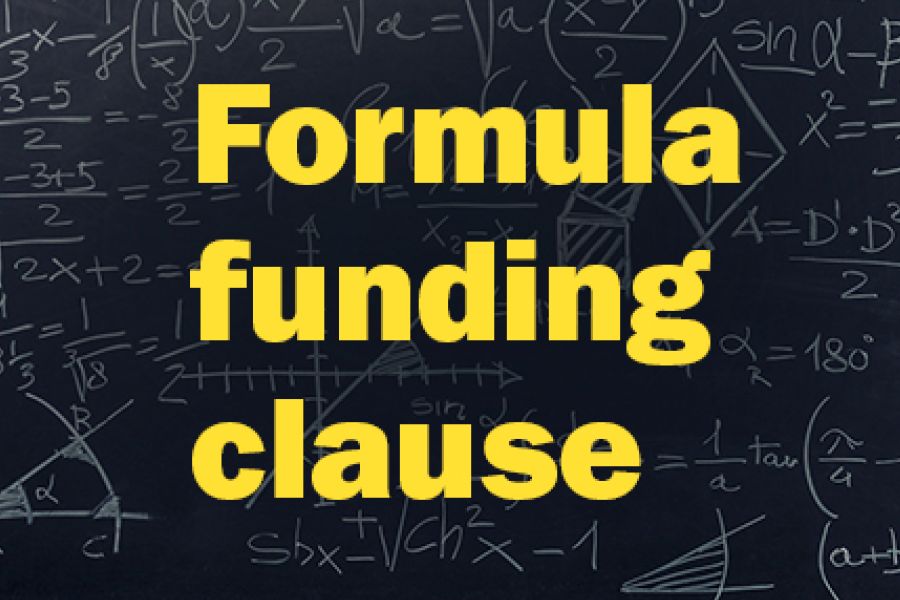When it comes to estate planning, trusts are appealing for many reasons. They can enable you to hold and transfer assets for beneficiaries, avoid probate and reduce estate tax exposure. But they can be complicated to set up. Don't underestimate the importance of naming your trustee. It may be one of the most important decisions of your life. As the name implies, this individual or financial institution must be above reproach. But that’s just one quality of many that your trustee requires. Both mundane and significant duties Trustees have significant legal responsibilities, primarily related to administering the trust for the benefit of beneficiaries according to the terms of the trust document. But the role can require many different types of tasks. For example, even if a tax expert...

Roth IRAs offer significant estate planning and financial benefits. Do you have a substantial balance in a traditional IRA and are considering converting it to a Roth IRA? There may be no better time than now. The Tax Cuts and Jobs Act (TCJA) reduced individual income tax rates through 2025. As such, it may be an ideal time for Roth IRA conversions. By making the conversion now, the TCJA enhances the benefits of a Roth IRA. Estate planning benefits The main difference between traditional and Roth IRAs is the timing of income taxes. With a traditional IRA, your eligible contributions are deductible on your tax returns but distributions of both contributions and earnings are taxable when you receive them. With a Roth IRA, on the other hand,...
If you own an interest in a closely held business, it’s critical to have a well-designed, properly funded buy-sell agreement. That's because buy-sell agreements can provide liquidity. Without one, an owner’s death can have a negative effect on the surviving owners. What would happen If one of your co-owners dies? You may be forced to go into business with his or her family or other heirs. And if you die, your family’s financial security may depend on your co-owners’ ability to continue operating the business successfully. Estate taxes: buy-sell agreements can provide liquidity to pay them There’s also the question of estate taxes. The federal gift and estate tax exemption is currently $11.4 million,. As such, estate taxes affect fewer people than they once did. But estate taxes...
When planning your estate, you’re likely focused on major assets, such as real estate, investments and retirement plans. But it’s also important to consider specific bequests of sentimental value assets. Examples include jewelry, antiques and photographs. These personal items — which often have modest monetary value but significant sentimental value — may be more difficult to deal with, and more likely to result in disputes, than big-ticket items. Squabbling over these items can lead to emotionally charged disputes and even litigation. In some cases, the legal fees and court costs can eclipse the monetary value of the property itself. Prepare a personal property memorandum Spelling out every gift of personal property in your will or trust can be cumbersome. Perhaps you want to leave your son a painting...
A common estate planning mistake that people make is owning property with a family member. True, adding a loved one to the title of your home, bank account or other property can be a simple technique for leaving property to that person without the need for probate. But any convenience gained is usually outweighed by a variety of negative consequences. Here are four: (1) Higher gift and estate taxes Depending on the size of your estate, owning property with a family member may trigger gift and estate taxes. When you add a family member’s name to an asset’s title as joint owner, for example, it’s considered a taxable gift of half the asset’s value. And your interest in the asset — including any future appreciation — remains...
Divorce necessitates an estate plan review. It’s important to review your estate plan as early as possible, for two reasons: You may wish to revise your plan immediately to prevent your spouse from inheriting or gaining control over your assets if you die or become incapacitated before the divorce is final. Although a divorce judgment or settlement automatically extinguishes certain of your former spouse’s rights, some documents must be modified to ensure that he or she doesn’t receive unintended benefits. Consider revising your will and any revocable trusts to exclude your spouse. Note that, in many states, your spouse will retain elective share or community property rights to a portion of your estate until the marriage ends. But revising your will or trust will limit your spouse...
If a prime objective of your estate plan is to leave your mark, dynasty trusts provide a legacy. That means it might be the right estate planning vehicle for you. The Tax Cuts and Jobs Act substantially increased the generation-skipping transfer (GST) tax exemption. That makes a dynasty trust more appealing than ever. GST tax and dynasty trusts Dynasty trusts provide a legacy in that they allow substantial amounts of wealth to grow and compound free of federal gift, estate and GST taxes. In so doing, tax-free benefits are provided for your grandchildren and future generations. The longevity of a dynasty trust varies from state to state. It’s becoming more common for states to allow these trusts to last for hundreds of years or even in perpetuity. Avoiding...
Planning your estate around specific assets is risky and, in most cases, should be avoided. If you are leaving specific assets to specific heirs (such as homes, cars or stock), you may inadvertently disinherit them. Leaving specific assets to specific heirs: Illustrating the problem Let’s say Debbie has three children — Abbie, Mary Kate and Lizzie. Debbie wishes to treat them equally in her estate plan. In her will, Debbie leaves a $500,000 mutual fund to Abbie and her home valued at $500,000 to Mary Kate. She also names Lizzie as beneficiary of a $500,000 life insurance policy. Now consider this scenario when Debbie dies years later: the mutual fund balance has grown to $750,000, Debbie had sold the home for $750,000, invested the proceeds in the mutual...
The gift and estate tax exemption is higher than it’s ever been. You can thank the Tax Cuts and Jobs Act (TCJA) for that. TCJA temporarily doubled the exemption to an inflation-adjusted $10 million. $20 million for married couples who design their estate plans properly. This year, the exemption amount is $11.4 million ($22.8 million for married couples). Because of this, estate plans containing a formula funding clause (FFC) should be reviewed. If you’re married and you executed your estate planning documents years ago, when the exemption was substantially lower, review your plan to ensure that the increased exemption doesn’t trigger unintended results. It’s not unusual for older estate planning documents to include a FFC. FFCs split assets between a credit shelter trust and the surviving...
Estate planning isn’t just about what happens to your assets after you die. It’s also about protecting yourself and your loved ones. This includes having a plan for making critical medical decisions in the event you’re unable to make them yourself. And, as with other aspects of your estate plan, the time to act is now, while you’re healthy. If an illness or injury renders you unconscious or otherwise incapacitated, it will be too late. Without a plan that expresses your wishes, your family may have to make health care decisions on your behalf or petition a court for a conservatorship. Either way, there’s no guarantee that these decisions will be made the way you would want, or by the person you would choose. Health Care Decisions:...











